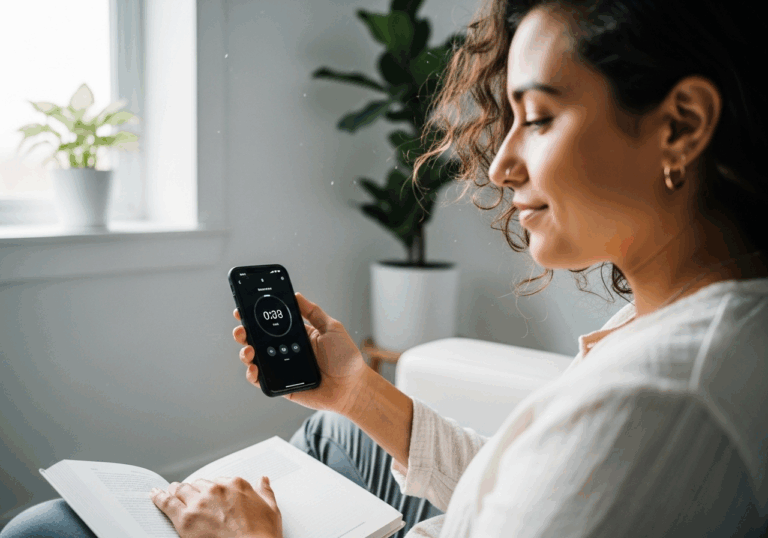Science-Backed Tips
Reduce Screen Time for Better Emotional Health
Limit screen time to improve mood and peer relationships by 30%.
📊 Did you know?
💡 Why It Matters
1️⃣
Reducing screen time can lead to a 30% decrease in emotional difficulties, enhancing overall mental health.
2️⃣
Improved peer relationships can foster better social support systems, crucial for adolescent development.
3️⃣
Lower internalizing symptoms contribute to long-term emotional resilience and wellbeing.
✅ Try These Micro-Tips
🎯
Limit recreational screen time to 2 hours per day for adolescents.
🎯
Encourage daily outdoor activities for at least 30 minutes to promote social interactions.
🎯
Engage in family activities that do not involve screens at least 3 times a week.
🎯
Set specific screen-free times during meals and before bedtime.
📚 The study
By reducing screen exposure, adolescents have shown a remarkable 30% decrease in emotional difficulties, leading to improved mental health outcomes.
This reduction in screen time not only fosters better peer relationships but also strengthens social support systems, which are crucial during the formative years of development.
The findings indicate that lower internalizing symptoms, such as anxiety and depression, contribute to long-term emotional resilience and overall well-being.
As parents and guardians, understanding the importance of moderating screen time can empower us to create healthier environments for our children.
By encouraging outdoor activities, face-to-face interactions, and hobbies that do not involve screens, we can help our youth cultivate better social skills and emotional health.
Ultimately, the evidence is clear: setting screen time limits is not just a parental guideline; it is a vital step towards nurturing happier, more resilient children who thrive in their social circles and beyond.
❓ Frequently Asked Questions ❓
Learn more
What are the benefits of reducing screen time for adolescents?
Reducing screen time can lead to a 30% decrease in emotional difficulties, enhancing overall mental health. It also improves peer relationships, fostering better social support systems crucial for adolescent development.
How does screen time affect emotional resilience in youth?
Excessive screen time is linked to increased internalizing symptoms, which can hinder emotional resilience. Limiting screen time helps adolescents develop better coping strategies and emotional regulation.
What is the recommended limit for recreational screen time for adolescents?
It is recommended that adolescents limit recreational screen time to 2 hours per day. This helps promote healthier emotional and social functioning.
How can outdoor activities benefit adolescents?
Engaging in outdoor activities for at least 30 minutes daily promotes social interactions and physical health. These activities can also improve mood and reduce feelings of isolation.
What role do family activities play in reducing screen time?
Participating in family activities that do not involve screens at least three times a week strengthens family bonds. These interactions can enhance emotional support and reduce reliance on digital devices.
Why is it important to set screen-free times during meals?
Setting screen-free times during meals encourages meaningful conversations and strengthens family relationships. This practice can also help adolescents develop healthier eating habits and mindfulness.
What are internalizing symptoms, and why are they significant?
Internalizing symptoms refer to emotional difficulties such as anxiety and depression that are often hidden. Reducing these symptoms is crucial for long-term emotional resilience and overall well-being.
How does improved peer relations affect adolescents?
Improved peer relations foster better social support systems, which are essential for adolescent development. Healthy friendships can enhance self-esteem and provide emotional support during challenging times.
What empirical findings support the reduction of screen time?
Research indicates that adolescents who reduce screen time exhibit fewer emotional and peer-related difficulties. These findings highlight the importance of screen time limits in promoting mental health.
What strategies can parents use to help limit their children’s screen time?
Parents can set specific screen-free times, encourage outdoor activities, and engage in family activities without screens. Establishing these routines can help create a balanced lifestyle for adolescents.





